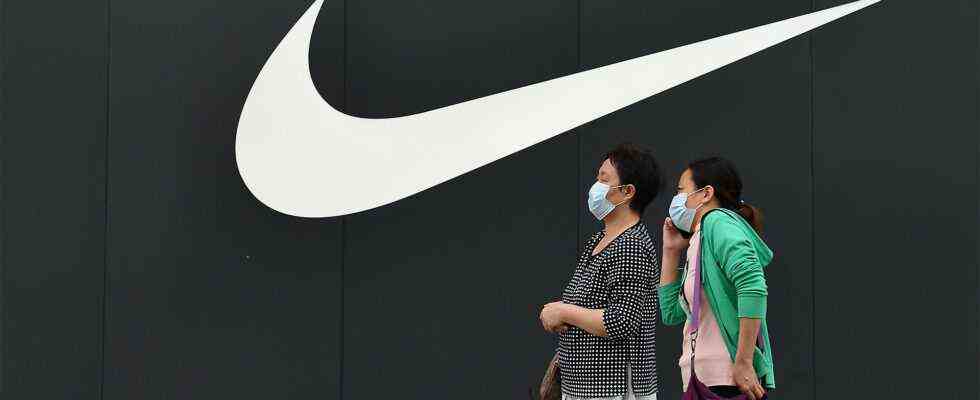Status: 25.06.2021 10:15 a.m.
The end of the corona restrictions worldwide has brought Nike a billion dollar profit. But in China, the US sporting goods manufacturer has a problem.
The sporting goods manufacturer Nike has tried to use the short time due to the corona to rely even more on the advantages of digitization in the future. Nike boss John Donahoe, who once ran the ebay trading platform, is working to increase direct sales to consumers both through in-house stores and online.
That paid off in the pandemic, in which many stores and shopping malls remained closed. In the entire past financial year, direct revenues rose by almost a third. They now make up nearly 38 percent of Nike’s business. Nike has around 300 million registered direct customers, it said.
Big business in the USA
However, the majority of sales are still generated in the stores, which is why Nike benefits above all from the fact that the corona restrictions are tending to decrease worldwide. Revenue of $ 12.3 billion in the fourth quarter was almost twice as high as a year earlier, when the pandemic had the world even more under control. Compared to the corona-free fourth quarter of 2019, sales increased by 19 percent.
Business in the USA and Canada developed even faster than in the rest of the world. Sales in North America shot up 141 percent to just under $ 5.4 billion in the past quarter. The greatest increases were in sportswear. The bottom line was that Nike made $ 1.5 billion. In the same quarter of the previous year, the minus had been 790 million dollars.
Setback in China
Business in China is worrying, however. There, sales growth in the past quarter was only 17 percent, drastically lower than in the rest of the world. Nike is among the companies that were attacked on Chinese social media after the company addressed forced labor in the Xinjiang Autonomous Region.
Other companies such as H&M, Zara and Adidas had also criticized human rights violations against the Uyghurs and other minorities in China. The Chinese government then launched a campaign against Western fashion companies in March and threatened sanctions.
Nike popular as a brand?
The Chinese market is now of paramount importance, and not just for the world’s car manufacturers. Fashion companies and sporting goods manufacturers also want to sell their products on the gigantic market. It becomes all the more uncomfortable for companies when politics and business come into conflict.
The Swedish fashion chain H&M had it particularly hard: after management declared that it would not use cotton from Xinjiang because of human rights violations by the Uyghur minority, the company disappeared from Chinese online trading platforms.
Nike boss Donahoe emphasized in this context that Nike has a long-term view of the Chinese market and that the brand is popular there.
Sporting goods manufacturer in demand
Despite the problems in China, the share jumped sharply after the quarterly figures were announced and rose by more than ten percent. Puma and Adidas shares are also picking up in the wake of Nike. For investors, the unexpectedly strong figures from the USA are a buy signal, because they are speculating that the business of German providers of sporting goods will also be booming.

